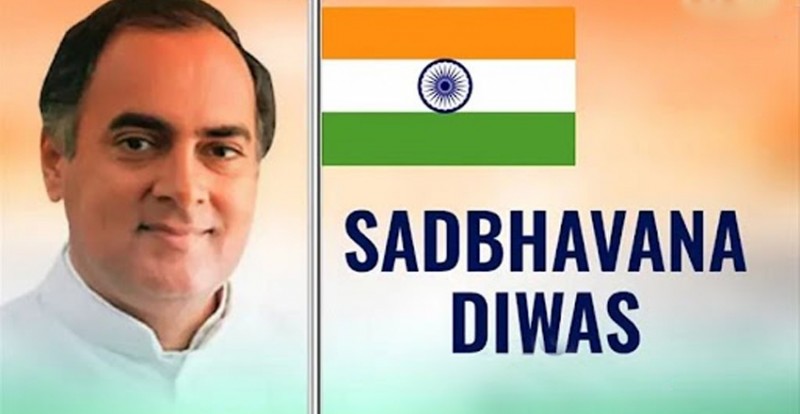
Every year on August 20, India observes Sadbhavana Diwas, a day dedicated to promoting national integration, peace, and harmony among various communities. The day is celebrated in memory of former Prime Minister Rajiv Gandhi, whose vision for India included unity and progressive development across all sections of society. Sadbhavana Diwas, meaning Harmony Day, honors his contributions to India’s growth and peaceful coexistence.
Why Is Rajiv Gandhi's Birthday Observed as Sadbhavana Diwas?
Rajiv Gandhi's birth anniversary was chosen to be commemorated as Sadbhavana Diwas due to his strong belief in peace, communal harmony, and unity among India's diverse population. Rajiv Gandhi, the youngest Prime Minister of India, is remembered for his efforts to usher India into the information technology era and his leadership in maintaining a secular and united nation. A year after his tragic assassination in 1991, the Congress Party instituted the Rajiv Gandhi Sadbhavana Award in 1992 to honor those who promote peace and understanding.
On Sadbhavana Diwas, citizens across the nation are encouraged to take a pledge to work towards maintaining harmony and goodwill among people. Many public events, debates, and cultural programs are organized to spread the message of brotherhood, non-violence, and unity.
Interesting Facts About Rajiv Gandhi
Youngest Prime Minister of India: At just 40 years old, Rajiv Gandhi became the youngest Prime Minister in India's history after the assassination of his mother, Prime Minister Indira Gandhi, in 1984.
Technological Pioneer: Rajiv Gandhi is often credited with revolutionizing India's technology sector. He introduced policies that spurred the growth of computers and telecommunications in India, making the country a global IT powerhouse.
Trained Pilot: Before entering politics, Rajiv Gandhi pursued a career as a pilot. He was a trained commercial pilot with Indian Airlines and had no immediate plans to join politics until the untimely death of his brother, Sanjay Gandhi.
Educational Background: Rajiv Gandhi attended some of the world's most prestigious institutions, including Cambridge University in the UK. He had a keen interest in science and technology, which influenced many of his decisions as Prime Minister.
Peace Efforts: During his tenure, Rajiv Gandhi took significant steps towards resolving internal conflicts and promoting peace in troubled areas like Punjab and Assam. He signed the Punjab Accord and the Assam Accord to bring stability and peace to these regions.
Support for Anti-Corruption Measures: Rajiv Gandhi was a strong advocate for clean governance. He famously introduced the Anti-Defection Law to curb political instability caused by party-switching.
Visionary Reforms in Education: Rajiv Gandhi was instrumental in implementing educational reforms in India. He emphasized modernizing the education system by promoting technical education and ensuring rural development through programs like Jawahar Rozgar Yojana.
Champion of Youth and Women’s Empowerment: Rajiv Gandhi was known for empowering youth and women. He lowered the voting age from 21 to 18, thereby increasing youth participation in democracy. He also introduced policies to promote women’s rights and participation in the workforce.
Advocate for Panchayati Raj: Rajiv Gandhi’s belief in decentralization of power led to the strengthening of local governance through the Panchayati Raj system. His initiatives empowered local bodies to take control of their own development.
International Relations: Rajiv Gandhi’s foreign policy was marked by efforts to improve India’s relations with neighboring countries and the global community. He played a key role in peacekeeping efforts in Sri Lanka during the civil war, albeit with mixed outcomes.
Rajiv Gandhi’s Tragic Assassination: On May 21, 1991, Rajiv Gandhi was assassinated by the LTTE (Liberation Tigers of Tamil Eelam) while campaigning in Tamil Nadu. His death shocked the nation and led to widespread mourning.
Rajiv Gandhi’s legacy continues to inspire efforts towards national harmony and progress. Sadbhavana Diwas serves as a reminder of his vision for an inclusive, peaceful, and progressive India. On this day, citizens are encouraged to promote goodwill and unity, embodying the spirit of Rajiv Gandhi’s aspirations for a harmonious nation.